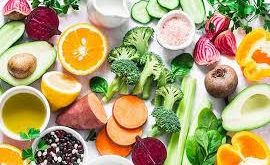Taking care of one’s health during the summer requires specific attention to combat flu, dehydration, pollen allergies, and other seasonal concerns. Staying hydrated is paramount, with ample water intake and avoidance of sugary or caffeinated drinks. Protecting oneself from the sun’s harsh rays is vital, necessitating sunscreen application, wearing light clothing, and seeking shade during peak hours. Maintaining good hygiene, including frequent hand-washing and avoiding crowded places, helps prevent flu and allergy transmission. Pollen allergies can be managed by keeping windows closed, using air purifiers, and consuming allergy medications. Additionally, incorporating hydrating foods like watermelon and cucumber into the diet boosts immunity and overall health.
Fluctuating temperatures may still host specific flu strains during the summer, with symptoms resembling those of dehydration. Differentiating between them is crucial, with flu symptoms including fever, body aches, and cough, while dehydration manifests as excessive thirst and dark urine. Practical hydration tips include regular fluid intake, offering hydrating foods, and staying indoors during peak heat. Monitoring urine color and recognizing signs of dehydration prompt immediate action, such as rest and fluid intake.
Preventing heat-related illnesses like heat exhaustion and dehydration requires proactive measures, especially for vulnerable groups like children and the elderly. Hydration strategies, including regular fluid intake and cool compresses, mitigate dehydration risks. Recognizing dehydration signs like thirst and dizziness prompts immediate hydration and seeking medical attention for severe symptoms. Specific electrolyte drinks and oral rehydration solutions aid in replenishing lost fluids and electrolytes, ensuring optimal hydration levels. By taking precautions against pollen allergies, such as avoiding outdoor activities during peak pollen times and using air conditioning with HEPA filters, individuals can manage symptoms effectively.
Lifestyle adjustments like dietary modifications can alleviate allergy symptoms, with an anti-inflammatory diet and omega-3 fatty acids reducing inflammation. Probiotic-rich foods and locally sourced honey may also mitigate allergic reactions. Recognizing common allergy triggers, such as grass pollen and flowering plants, enables individuals to implement preventive measures like avoiding outdoor activities during high pollen counts. Over-the-counter medications like antihistamines and nasal corticosteroids provide relief from allergy symptoms, complementing avoidance measures. Consulting healthcare providers for personalized treatment plans ensures effective allergy management.
Finally, staying informed through reliable sources like government health departments, healthcare institutions, and weather agencies equips individuals with essential information on staying healthy during the summer. Community health centers and NGOs conduct awareness campaigns tailored to the community’s needs, while online health portals and social media platforms offer accessible resources. By accessing information from these sources, individuals can make informed decisions to maintain their health and well-being throughout summer season.
SOME IMPORTANT TIPS TO STAY HEALTHY IN SUMMER
Stay Hydrated: Maintaining adequate hydration levels is most important. Intake of plenty of fluids is the best. Sugary beverages cause more thirst and hence needs to be avoided. Water is the safest choice. Sip water regularly even if you are not thirsty.
Hydrating Foods: In addition to drinking water, fruits and vegetables with high water content, such as watermelon, cucumber, oranges, and strawberries, can help replenish lost fluids and electrolytes.
Protect Against Sun Exposure: Exposure to the sun’s harmful UV rays can weaken the immune system and make you more susceptible to infections. Protecting skin by wearing sunscreen with high SPF and wearing protective clothing like hats and sunglasses help.
Good Hygiene: Proper hygiene habits like wash hands frequently with soap and water, especially before eating or touching our face plays a very important rold
Boosting Immune System: Eating a balanced diet rich in fruits, vegetables, whole grains, and lean proteins contributes to a strong Immune system. Regular exercise, adequate sleep, and managing stress levels Helps keep our immune system at its best.
Stay Active Safely: Exercise early in the morning or later in the evening when temperatures are cooler, and staying hydrated before, during, and after physical activity helps.
Avoid Close Contact with people who are sick: Avoiding close contact with people who is sick with the flu, cough, or cold, helps reduce the risk of transmission.
Timely Medical Attention: Seeking medical attention if we develop symptoms of flu, cough, or cold that persist or worsen is the right thing to do. Early intervention and treatment can help prevent complications and ensure a speedy recovery.”
– Dr Sunil Kumar Prabhu, Consultant dermatologist and Aesthetic Physician, Aster RV hospital
 Newspatrolling.com News cum Content Syndication Portal Online
Newspatrolling.com News cum Content Syndication Portal Online






